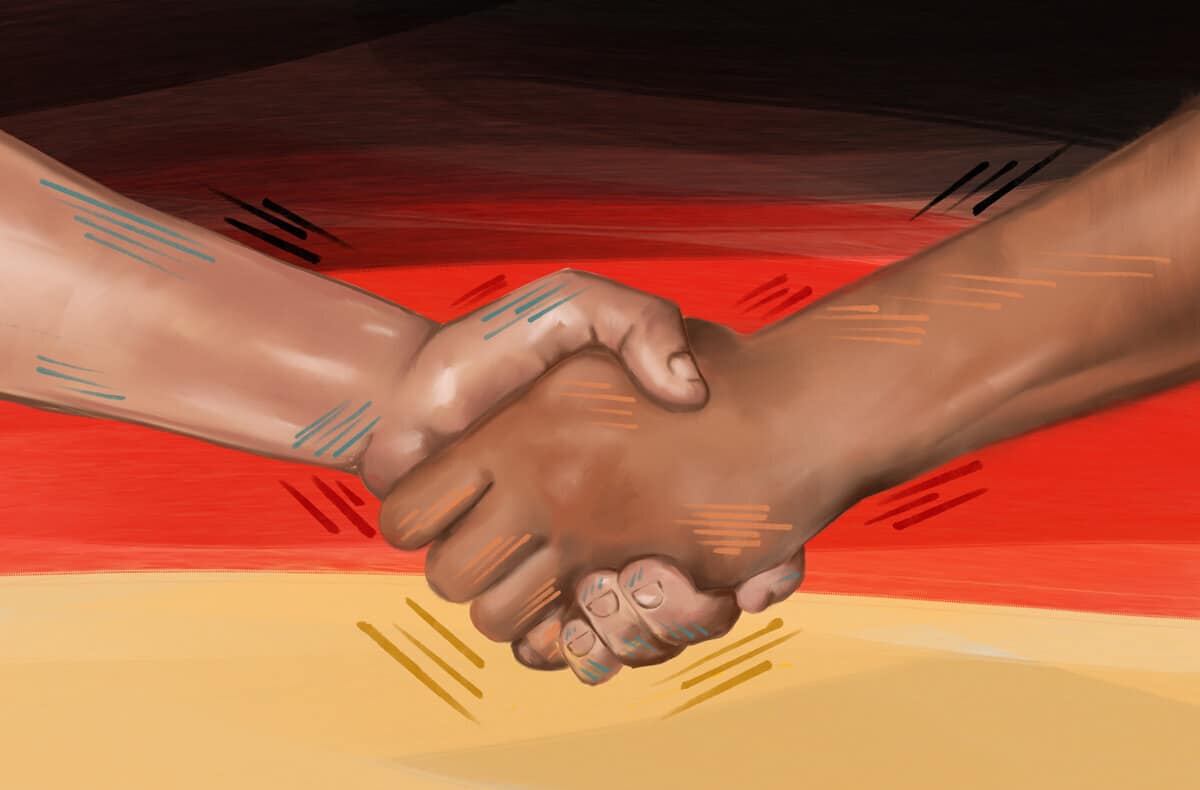
It’s a dangerous time to say anything about geopolitics as the world turns upside down. But one thing I have been saying quietly, but with increasing regularity, in my workplace is: “Can we just be a bit more German about this…”
Now don’t get me wrong; the UK’s bigger neighbour isn’t perfect, but they do a good job of a lot of things. The stereotypes would include efficiency, reliability and engineering excellence—and these are surely virtues the UK would do well to aspire to; but they’re not the one I’m advocating for. I’ve been making the case for consensus.
British and American business culture kinda likes “big trousers” leadership; charismatic, hard-driving individualists with “vision” that myopic underlings cannot be expected to see or understand. All hail the leader!
But that’s the problem. If you’re not the “boss man” (and all too often it is a man,) then your best laid plans and carefully nurtured teams, projects, and stakeholder relations can be swept away on a whim if the “Dear Leader” and his acolytes accuse you of timidity, taking into account other points of view, or lacking tough-mindedness. We’re all supposed to forget the messy human stuff and focus on the simplistically identified “new strategic direction” or the next pressing “business need.”
So imagine my delight when I got to be the boss man! Hooray! A chance to do it differently!
But not so fast… Anglo-American working culture wants “big-trousered” decisions from you. And not just on big things, but on everything—including stuff you may not know much about, or frankly want to know much about.
And it gets worse! You make a few decisions and then everyone starts to mutter: “I’m not sure I’d have done that.” Or as we like to say in the UK: “That’s brave!” Then, of course, people being people, folk ignore and subvert the decisions they don’t like and adopt and adapt the ones they do to their own purposes.
Now, a proper “big trousers” leader reading this will harrumph and say, “This guy’s not up to the top job; he needs to fire some people or ship out himself.”
But does he…? Because there is another approach: be a bit more German. What I’ve started saying to people is: “Look, how about we do this Federal Germany style… talk to people, find out where they stand and what they think, and if a consensus emerges—and it’s not a terrible idea—why don’t we do that?”
This tends to cause some consternation: “But what if people disagree with each other, what if we encounter resistance?” Well, the obvious answer is, if people disagree, it might be helpful to find out in advance and why. And if everyone thinks something’s a terrible idea, maybe that’s a sign that we shouldn’t do it at all… Heresy!
The advantage of being a bit more German about things is:
1) You find out what people really think and want to do;
2) You socialise and get people on board collectively with the plan;
3) If you encounter genuine resistance, you can figure out why, and what to do (or not do) about it;
4) You save yourself from yourself in pushing your own duff ideas and pet projects;
5) You get a better sense of what priority to give different things;
6) You can park and stop talking about stuff that people keep raising, but no-one is really that keen to actually do anything about.
Of course, if the building is burning or the roof falls in, I think it’s ok to get the “big trousers” out and make executive decisions—Angela Merkel always knew when to get a grip and take a firm hand on the tiller. But most of the time, instead of lurching to the left and right, German consensus politics and the German Model of business gets the right things done and the wrong things left well alone.
A bit less Sturm und Drang and a lot more Konsens is my current order of the day.



